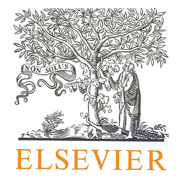دانلود ترجمه مقاله محرک ها و داخلی سازی مدل تعالی EFQM
| عنوان فارسی |
محرک ها و داخلی سازی مدل تعالی EFQM |
| عنوان انگلیسی |
Drivers and internalisation of the EFQM excellence model |
| کلمات کلیدی : |
جبران؛ ارزیابی؛ EFQM؛ تعالی؛ داخلی سازی؛ انگیزه هایی برای پذیرش |
| درسهای مرتبط | مدیریت کیفیت و بهره وری |
| تعداد صفحات مقاله انگلیسی : 23 | نشریه : Emerald |
| سال انتشار : 2019 | تعداد رفرنس مقاله : 86 |
| فرمت مقاله انگلیسی : PDF | نوع مقاله : ISI |
|
پاورپوینت :
ندارد سفارش پاورپوینت این مقاله |
وضعیت ترجمه مقاله : انجام نشده است. |
1. مقدمه 2. پیشینه نظری 3. روش تحقیق 4. یافته ها 5. بحث و بررسی 6. نتیجه گیری

هدف: اگرچه مدل تعالی «بنیاد مدیریت کیفیت (EFQM)، بطور گسترده ای در کل اروپا پیاده سازی شده است، اما یک بررسی جامع و کامل در مورد عوامل سهیم در درونی سازی این مدل (یعنی یک بکار گیری اساسی) در ادبیات، نادیده گرفته شده است. هدف این مقاله، ارائه مدلی است که محرک های درونی سازی واقعی مدل تعالی EFQM را با تاکید بر نقش انگیزه های بکار گیری و سیستم های ارزیابی و حقوق دهی، تحلیل می کند. طراحی/روش پژوهش/رویکرد: یک مطالعه تجربی براساس یک نمونه از سازمان های اسپانیایی که از EFQM استفاده کرده اند، انجام شد. برای بررسی پرسش های پژوهشی، از مدل های معادله ساختاری، تحلیل خوشه ای و ANOVA، استفاده شد. یافته ها: انگیزه های داخلی در مورد ایجاد یک سبک مشارکتی، محرک اصلی درونی سازی می باشند. علاوه بر آن، داشتن یک ارزیابی سیستم محور جهت توسعه کارکنان به بکارگیری اساسی مدل EFQM، کمک می کند. این یافته ها، اهمیت عناصر نرم مدل EFQM را تقویت می کنند. اصالت/ارزش: این مطالعه، شواهد مربوط به انگیزه های بکارگیری و تاثیر آنها بر درونی سازی مدل EFQM را بهبود می بخشد. همچنین درونی سازی را در یک زمینه نوین، سازمان هایی که EFQM را به رسمیت شناخته اند، بررسی می کند و در بحث در مورد اثربخشی مدل EFQM برای بهبود عملکرد، با آشکار سازی عوامل موثر بر تقویت درونی سازی این مدل در رویه های سازمانی، مشارکت می کند.
Purpose: Although the European Foundation for Quality Management (EFQM) Excellence Model has been widely adopted throughout Europe, a thorough examination of the factors that contribute to the internalisation of the model (i.e. a substantive adoption) has been neglected in the literature. The purpose of this paper is to present a model that analyses the drivers of the real internalisation of the EFQM excellence model, with a focus on the role of motives for adoption, and appraisal and compensation systems. Design/methodology/approach: An empirical study was carried out based on a sample of Spanish organisations that had been awarded EFQM recognition. Structural equation models, cluster analysis and ANOVA were used to examine the research questions. Findings: Internal motives concerning the creation of a participative style are the main driver of internalisation. Moreover, having an appraisal system-oriented towards the development of employees helps the substantive adoption of the EFQM model. These findings reinforce the importance of the soft elements of the EFQM model. Originality/value: This study enhances evidence about the motives for adoption and their influence on the internalisation of the EFQM model. It analyses internalisation in a novel context, EFQM recognised organisations, and contributes to the debate about the efficacy of the EFQM model to performance improvement, by unveiling the factors that could foster the internalisation of the model within the organisational routines.




دیدگاهها
هیچ دیدگاهی برای این محصول نوشته نشده است.